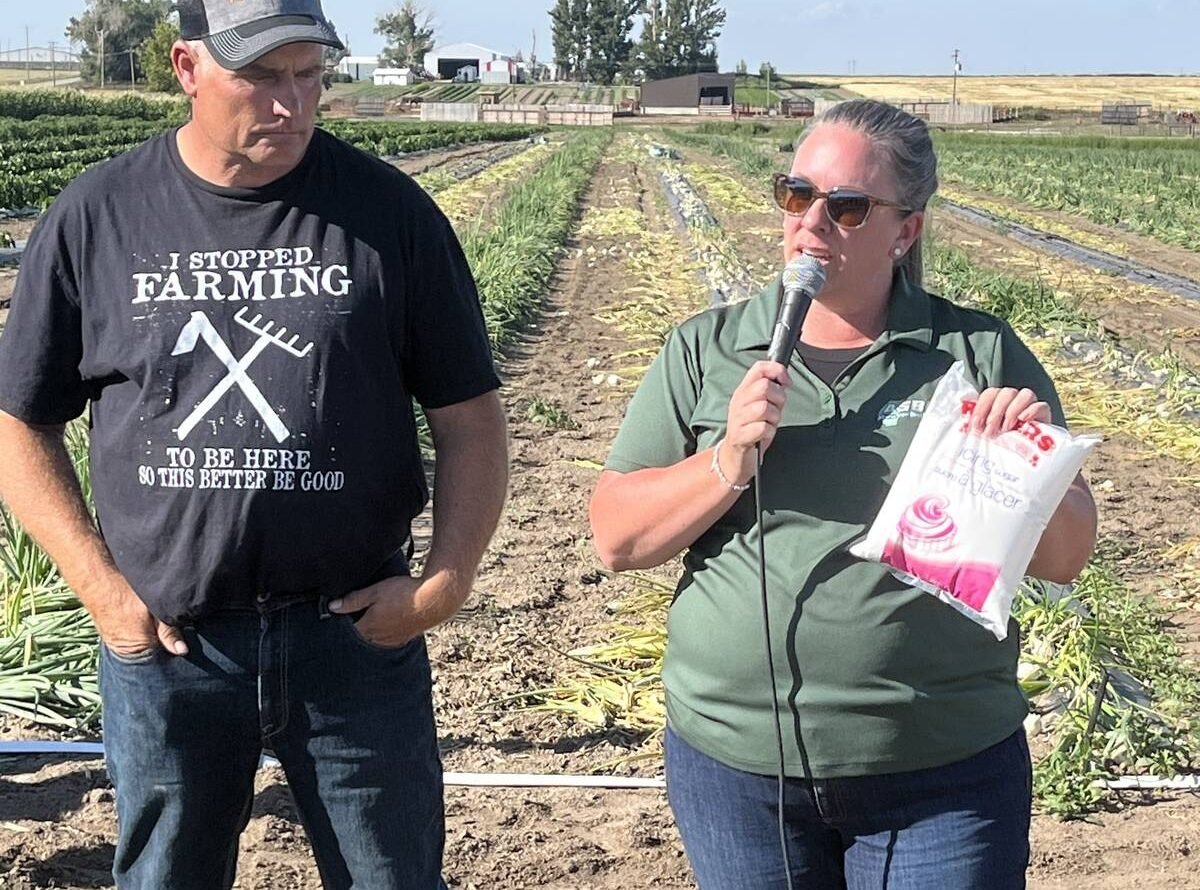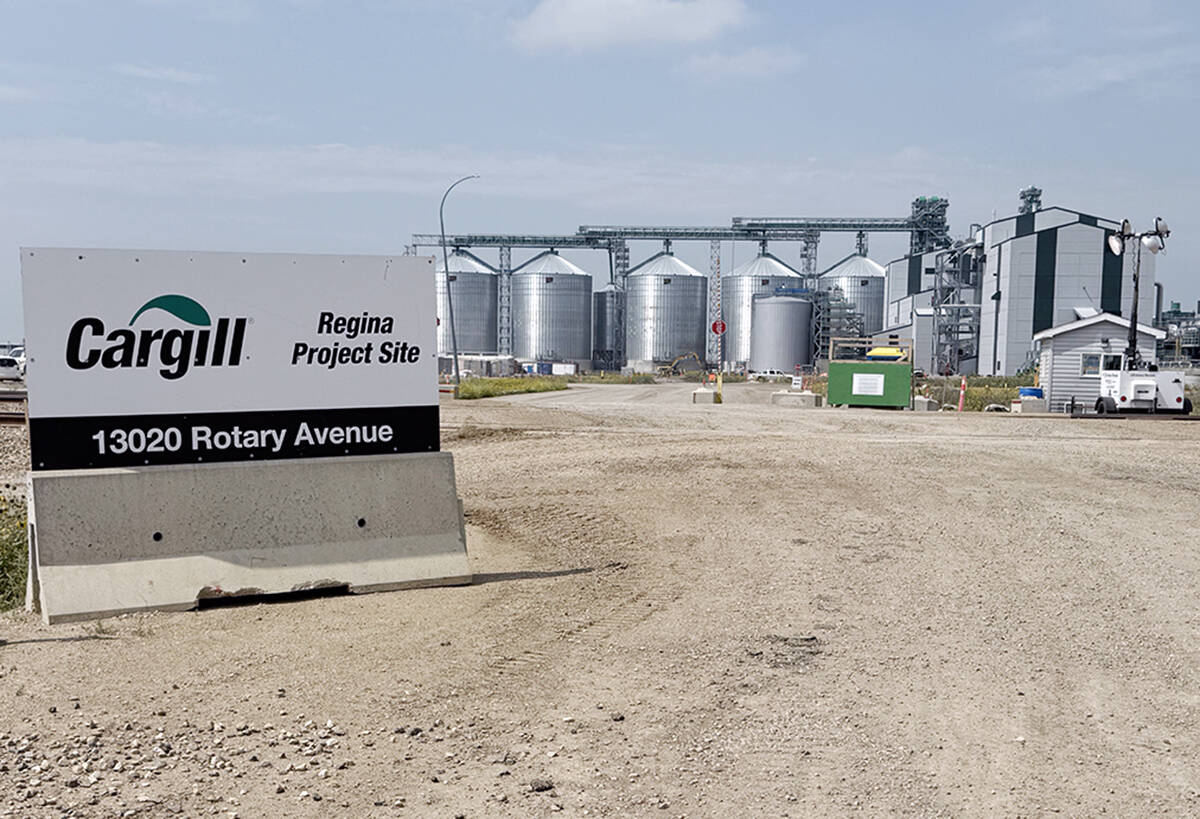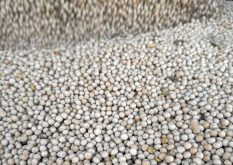SASKATOON — Canola growers finally have some good news to celebrate.
Cargill’s brand-new Regina crush facility is coming online just as farmers are reeling from the loss of their top export market.
“At a time of uncertainty in the canola markets, to have domestic demand is a really good opportunity for farmers,” said Cargill Limited president Jeff Vassart.
The company will start commissioning the plant in the next couple of months, so it will be up and running before the end of the calendar year.
Read Also

Alberta’s beets a sweet domestic segment in Canada’s sugar supply
The sugar beet industry is showcased during a Farm to Table tour, as Taber features the last remaining sugar beet processing plant in all of Canada.
Once fully operational it will purchase and process one million tonnes of canola seed per year.
That is the same amount of canola that Japan bought in 2024, making it Canada’s second-largest export market that year behind China.
China announced on Aug. 12 that it is implementing a 75.8 per cent anti-dumping duty on Canadian canola imports.
That effectively shutters the Chinese market, which consumed 5.86 million tonnes of Canadian canola seed in 2024.
Tracy Broughton, executive director of the Saskatchewan Canola Development Commission, said the commissioning of the Cargill plant could not have been any timelier.
“It’s definitely a bit of a silver lining to have this million-tonne crush plant coming online right now,” she said.
It will be a valuable new outlet for growers in the province’s brown and dark brown soil zones.
“Typically, our crush facilities are a little bit further north in Saskatchewan, so that just broadens it for those farmers who are a little bit further south in less traditional canola growing areas,” said Broughton.
Cargill already operates a crush facility in Clavet, Sask., that processes 1.5 million tonnes annually and another in Camrose, Alta., that is identical to the new Regina plant.
That brings the company’s total Canadian crush capacity to 4.5 million tonnes.
The Regina project faced some “unique challenges” and “headwinds” along the way. It started four years ago during a global pandemic that drove up material costs, disrupted supply chains and restricted labour.
The project ended up costing more than its original $350 million budget and completion was delayed by six to 12 months.
Approximately 650 people were working on the site during its busiest build times. An estimated four million labour hours were spent on construction of the plant.
It required 466,000 kilometres of electrical cables, 56,300 kilometres of piping, 20 kilometres of rail track and 4,000 truckloads of concrete.
Vassart expects the Regina plant to have a similar procurement radius as the Clavet and Camrose plants, which is about 300 to 350 kilometres.
That means it will be drawing in canola from western Manitoba as well as a large portion of southern Saskatchewan.
The facility will also be able to receive canola by rail, so Cargill can utilize its entire elevator network if necessary to keep the plant running.
Farmers are already using the Cargill Power Canola Program to peruse bids for various delivery months and lock in some of their 2025 production.
Vassart said the company has created what it hopes will be a “friendly” delivery experience for growers.
They can pick a delivery schedule that suits their needs.
“We do that to try and manage time waiting so it reduces line-ups,” he said.
The facility has two delivery pits, so two trucks can be unloaded simultaneously.
A RFID tracking system allows farmers to quickly communicate information about themselves and their contracts.
“We’re really trying to make it as simple and customer friendly as we possibly can for farmers when they’re delivering,” said Vassart.
The plant will service domestic demand as well as U.S. and international markets. It will service food, feed and biofuel markets.
The North American food market is growing at the same clip as gross domestic product, while the biofuel market is growing exponentially.
“What we’re really trying to do is make sure we’re agile and we can serve those markets as the opportunity arises,” he said.
Cargill has been keenly monitoring how U.S. biofuel policy is unfolding, but that is a moving target, so there is still plenty of uncertainty in how demand will shape up in that key market as the Regina plant prepares to be christened.
“It’s not ideal obviously,” said Vassart.
“But what’s important is that we build these plants to operate 50-plus years and so we still fundamentally believe this is a really good investment for Canada, Regina and Canadian farmers long-term.”
But in the meantime, the plant may need to find some new markets for one of the products it will be producing.
Earlier this year, China implemented a 100 per cent tariff on Canadian canola oil and meal. The country is not a big buyer of oil, but it is a huge consumer of meal.
It purchased two million tonnes of Canadian canola meal in 2024, second only to the U.S., which bought 3.77 million tonnes that year. The two countries account for almost all of Canada’s exports.
Broughton said that is a concern for farmers who know that the price they get for their seed partly depends on whether there are good markets for the meal.
“It’s just something that the crushers do need a market for, otherwise it can pile up pretty quickly,” she said.
Vassart said the uncertainty surrounding the Chinese market makes it difficult to plan, but he sees it as short-term turbulence.
“Long-term we do see a growing need for protein, and we think canola meal fits into that,” he said.
There were originally three large crush projects planned for Regina.
Earlier this year, Federated Co-operatives Ltd. paused plans to build its $2 billion Integrated Agriculture Complex at Regina for “the foreseeable future.”
The plan included a canola crush facility jointly owned by AGT Food and Ingredients capable of processing 1.1 million tonnes of seed per year.
There are also reports that Viterra is shelving its plan to build a plant capable of processing 2.5 million tonnes of seed annually.
Vassart said he has no idea if either of those plans will be resurrected.
“We’re just really excited that we followed through and we’re going to have our plant up and running,” he said.
“We’re happy with our decision and the impact that we’re going to be able to have.”
Once the plant is running the company will continue to assess demand to see if more expansions or new builds are required.
“If the demand is there, I think the Cargill family has demonstrated a willingness to continue to invest in Canadian agriculture,” said Vassart.
















